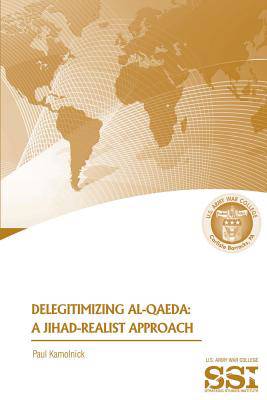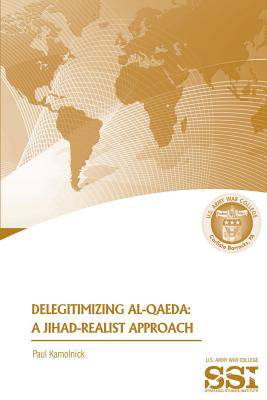
- Retrait gratuit dans votre magasin Club
- 7.000.000 titres dans notre catalogue
- Payer en toute sécurité
- Toujours un magasin près de chez vous
- Retrait gratuit dans votre magasin Club
- 7.000.0000 titres dans notre catalogue
- Payer en toute sécurité
- Toujours un magasin près de chez vous
16,95 €
+ 33 points
Format
Description
During the past two decades, America and the world have witnessed the ignoble rise and now-pending destruction of the al-Qaeda terrorist entity, one of the modern world's most vicious and successful transnational organizations. Scholars and national security personnel have dedicated vast resources to dissecting and analyzing al-Qaeda's ideological, strategic, organizational, and tactical strengths and weaknesses. Notable in this entire debate, however, has been the repeated refrain among scholars and U.S. policymakers that we have yet to design and execute a successful messaging campaign that effectively attacks and delegitimizes al-Qaeda in the eyes of potential recruits. Dr. Paul Kamolnick's monograph is designed to address that present lacuna. It is not in the realm of so-called narrative, ideology, or a "war of ideas," he states, but in the realms of Islamic law, jurisprudence, and U.S. foreign policy that this delegitimizing can and should be waged. First, it is al-Qaeda's violations of the jurisprudence regulating the lawful waging of the military jihad and also its reckless, catastrophic damage to the Islamic cause that most undercuts al-Qaeda's appeal. And second, our willingness to engage in an honest and forthright appraisal of U.S. policies in the Muslim world, coupled with a genuine willingness to address long-simmering grievances, can also significantly undercut al-Qaeda's appeal. It is incumbent, Kamolnick concludes, for national security decision makers to develop the motivation, capability, and sophistication to promulgate and execute a carefully calibrated messaging strategy on these bases. Kamolnick's suggestion that al-Qaeda's mass casualty terrorism violates the Islamic law of war and that the key to dealing with al-Qaeda is a tractable clash of interests and not an intractable clash of civilizations is, if true, a welcome message indeed.
Spécifications
Parties prenantes
- Auteur(s) :
- Editeur:
Contenu
- Nombre de pages :
- 76
- Langue:
- Anglais
Caractéristiques
- EAN:
- 9781478380436
- Date de parution :
- 06-08-12
- Format:
- Livre broché
- Format numérique:
- Trade paperback (VS)
- Dimensions :
- 152 mm x 229 mm
- Poids :
- 113 g

Les avis
Nous publions uniquement les avis qui respectent les conditions requises. Consultez nos conditions pour les avis.






